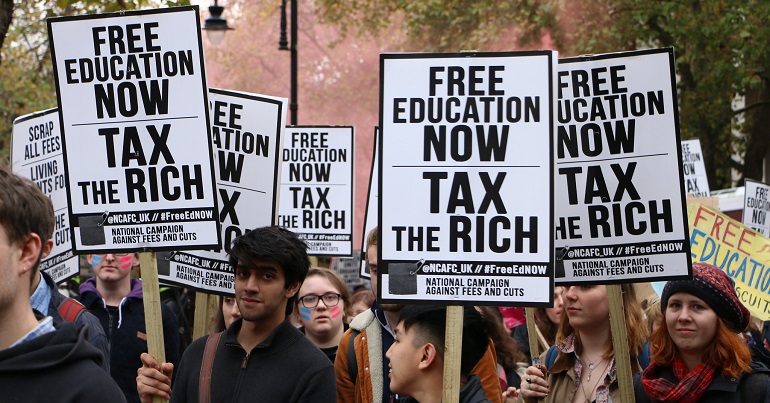A Diversity of Tactics

Photo courtesy of Stitch via flickr
One thing became clear on Wednesday – the movement against cuts won’t be led. People are angry, and they won’t allow that anger to be contained. Some of us will express it by ranting on blogs. Some will lobby MPs. Some will knock on doors or hand out leaflets on the streets. Some will drop banners from buildings, and some will write songs, poems or short testimonies.
Others will build websites, or produce comic videos. Some will occupy buildings, blockade roads, or glue themselves to each other.
And some will smash windows, tables, and chairs, push through police lines, and wear facemasks while doing so.
Those who write letters to their MP are likely to think that those who smash windows are damaging the movement. Those who break windows are likely to think that writing to your MP is a waste of time. Both will probably agree that it’s worth spending time talking to people, but that’s about as far as the tactical agreement will go.
But something else is pretty certain too. No matter how much Aaron Porter etc. complain about property damage, people who look to France and conclude that this is the best way to win will not stop doing it. And no matter how much the students at Millbank try to persuade him that he should, Aaron is unlikely to smash any windows himself.
And the truth is that basically all successful movements in history have employed all of the above tactics.
For those of us who have grown up in the global justice movement, the aftermath of Millbank was nothing new. This is what happens when the public face of a movement fails to plan for what those who refuse to follow orders may do. This is a lesson many NGOs learned long ago. Before the G8 in 2005, there were lengthy negotiations between the Make Poverty History coalition and those who wished to take more direct actions. The same discussions have become a standard part of any demonstration preparations. They normally conclude that, so long as actions aren’t violent against people, the NGOs won’t condemn them, and will, instead, allow those involved to speak for themselves, or some similar agreement.
If we are to move forward, organisations like NUS – and the students at Millbank (or at least those who now come together to organise future Millbanks) – need to learn these lessons: by condemning what happened at Millbank in such strong language, Aaron helped drive the media narrative, around what is and isn’t acceptable protest. Instead, he could easily have explained the anger, without actively supporting the way in which it was vented. Similarly, those who seek to organise the next Millbank may want to spend less time complaining that Aaron is a “careerist”, because again, that does little to help the cause.
There is an old activist mantra – “use all of the tools in the box”. If we are going to be successful in doing this, we can’t just complain when other people use tools we don’t believe in. We must negotiate a settlement from which we can all face the same way, and fight, in our different ways, together.


Leave a Reply